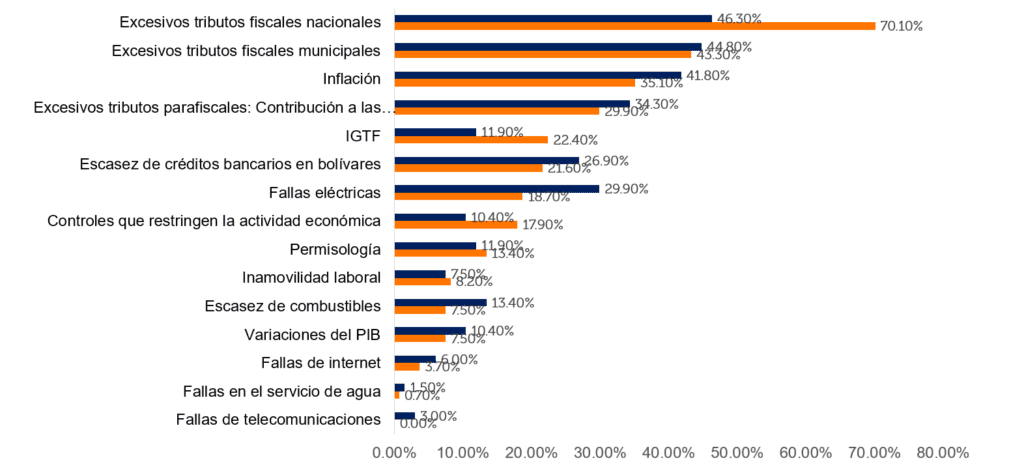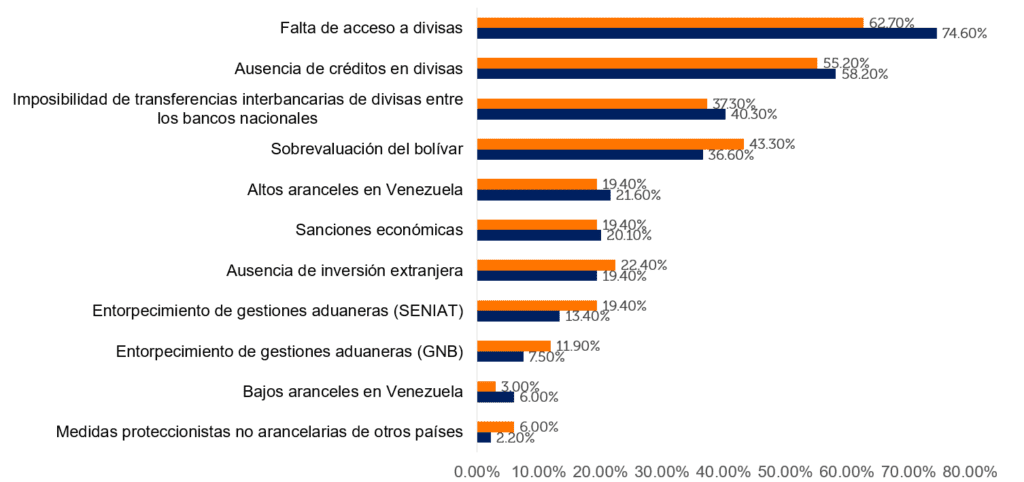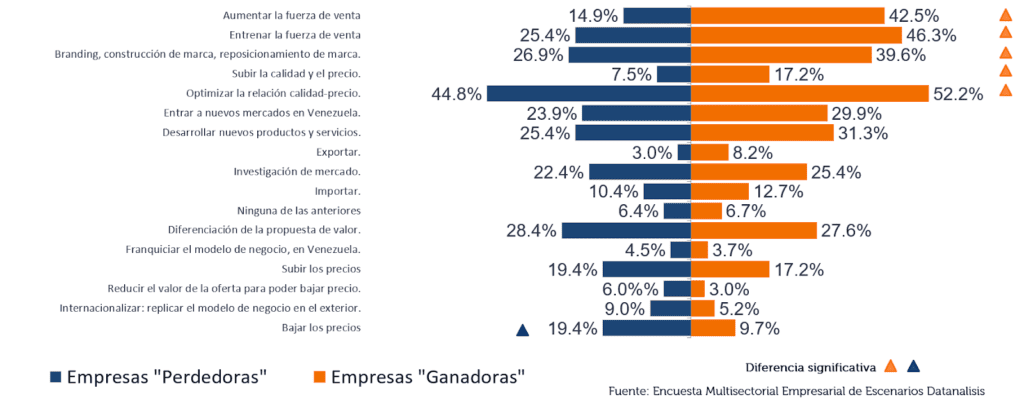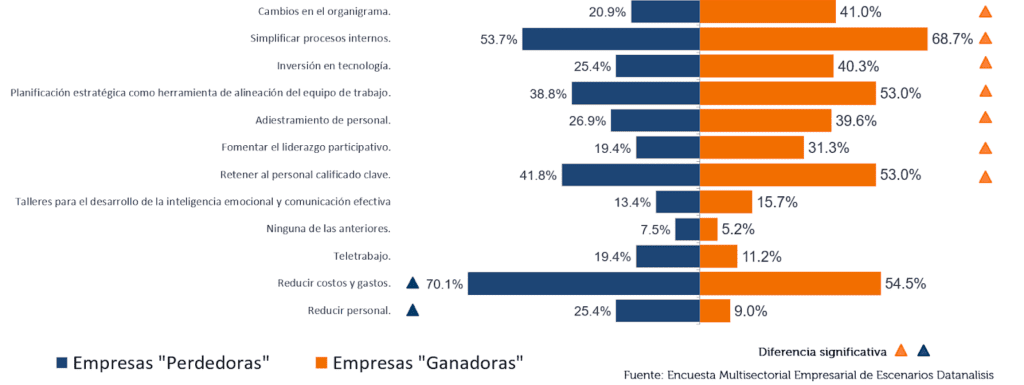Fabián Campos is a Business Economist graduated from Universidad Metropolitana and Coordinator of Scenarios and the Multisector Business Survey at Datanálisis. Photo: Social media.
Guacamaya, September 2, 2025. “If I drop prices, I’ll sell more,” “Business is slow, I’m going to have to reduce staff,” “I just need to cut costs and expenses to increase my profit margin.” We’ve all probably heard a friend or family member mention one of these phrases (or something similar) when “things are tough” for their business.
In one of the initial editions of the Datanálisis Multisector Business Scenario Survey in May 2021, shortly after the official end of the country’s pandemic lockdown restrictions (“7×7”), we uncovered an intriguing result: Certain companies, within the same sector and facing one of the toughest macroeconomic backdrops in recent years (COVID-19), managed to increase their sales while others did not.
This discovery led to the question: Why do some companies manage to grow sales even in such challenging circumstances? The first explanation business owners typically provide is the economic sector in which their company operates.
Clearly, a major characteristic of Venezuela’s economy today is its diversity. Some sectors are thriving, while others are stagnating; some show a greater willingness to invest than others. Yet, when we analyze the primary economic sectors in the survey, we identify “winners,” “stagnant,” and “losers”1 within each segment.

A second possible explanation arises from environmental factors that impede business activity. The contention here is that “losing companies” are “more affected” by the national and international economic climate.
Upon comparing the main obstacles that hinder business activity between “winning” and “losing” companies in Venezuela, we find that, with the exception of excessive national fiscal taxes—which impact companies with increasing sales (rather obviously)—there are not significant differences between the two groups. In other words, these environmental barriers are common across companies.


 Source: Encuesta Multisectorial Empresarial de Escenarios Datanálisis.
Source: Encuesta Multisectorial Empresarial de Escenarios Datanálisis.
Experience analyzing the dynamics of Venezuelan businesses at the national level indicates that sales success can’t be blamed on “macroeconomic or international environmental issues” nor on the “sector in which a company operates.” The secret is in the strategies.
From a market perspective, “winning” companies are marked by applying certain strategies more than “losing” companies, like: differentiating their offer, increasing the sales force, training their staff, building their brand, enhancing quality and price, and optimizing the quality-price balance.
Conversely, “losing” companies predominantly apply a single strategy: lowering prices.

Examining the internal practices of organizations, winners tend to: modify their organizational structures, streamline processes, invest in tech, plan strategically, train their workforce, and retain essential qualified personnel more frequently than losing companies.
In contrast, losing entities are characterized by a greater emphasis on cost and expense cuts, and workforce reductions compared to winners.

Therefore, contrary to the “bad advice” circulating, lowering prices, trimming costs, and reducing staff do not equal a fool-proof method of increasing sales in Venezuela. In fact, it’s quite the opposite: these are the very strategies predominantly used by companies whose sales have dropped over the last twelve months.
This isn’t a critique of these strategies themselves but rather of their isolated application: without a well-thought-out plan, without a clear direction, “just because,” or worse, “because that’s what I was told to do when things get tough,” and not as part of a comprehensive strategic update within the business model.
We will discuss this further with our key clients on November 4th at the Datanálisis anniversary event: “Venezuela: Present and Future, Consumer, Sectors, and Environment.”